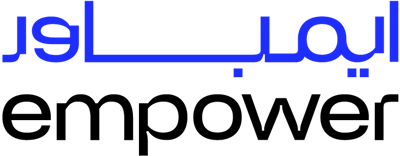
Preparing for a job interview can be a daunting task, especially when faced with the challenge of anticipating the interview questions you might encounter. In 2024, being well-prepared with thoughtful and polished answers is more crucial than ever. Whether you are a seasoned professional or a fresh graduate, understanding the most common interview question can give you a significant edge. This article will guide you through the top 13 interview questions to expect in your job interview, helping you to craft responses that showcase your skills and experiences effectively.
The Most Common Interview Questions for 2024
Preparing for a job interview involves understanding the most common interview questions and crafting well-thought-out answers. Here are the detailed explanations for the most frequent interview questions job seekers can expect in 2024:
1. Tell me about yourself
This is often the first of many interview questions and sets the tone for the rest of the interview. Your answer should be a brief overview of your professional background, highlighting key experiences and skills relevant to the job. Focus on your career trajectory and end with why you are excited about this opportunity.
2. Why should we hire you?
One of the common interview questions that requires you to showcase your unique qualifications. Discuss your skills, experiences, and accomplishments that align with the job requirements. Highlight how you can add value to the company and contribute to its success.
3. What are your weaknesses?
A challenging interview questions job seekers often face. Be honest but strategic. Choose a weakness that is not critical to the job and explain how you are working to improve it. This shows self-awareness and a commitment to personal growth.
4. What interests you about this role?
When asked this interview question, tie your interests and career goals to the job description. Explain what excites you about the role and how it fits into your career path. Demonstrating genuine enthusiasm and alignment with the job can impress the interviewer.
5. What are your career goals?
One of the common interview questions aimed at understanding your long-term vision. Describe your professional aspirations and how this job aligns with those goals. Highlight your commitment to growth and development within the company.
6. What are your salary expectations?
This interview question can be tricky. Research industry standards and provide a range that reflects your skills and experience. Be flexible and express your willingness to discuss and negotiate based on the overall compensation package.
7. What is your greatest professional achievement?
Answering this interview question involves highlighting a specific accomplishment that showcases your skills and impact. Use the STAR method (Situation, Task, Action, Result) to structure your response and demonstrate how you successfully achieved your goals.
8. What do you know about this company/organization?
Interviewers expect you to have done your homework. Mention key facts about the company, such as its mission, values, and recent achievements. Explain why these aspects resonate with you and how they align with your career goals.
9. Why do you want to leave your current company?
Handle this common interview question diplomatically. Focus on positive reasons such as seeking new challenges, professional growth, or aligning more closely with the prospective company's values and opportunities.
10. Where do you see yourself in 5 years?
Interview questions like this assess your long-term planning. Discuss your career ambitions and how the role fits into your future plans. Show that you are goal-oriented and see potential for growth within the company.
11. Describe a Challenge You Faced and How You Overcame It
A frequent interview question designed to evaluate your problem-solving skills. Use a specific example to illustrate how you identified a challenge, implemented a solution, and achieved a positive outcome.
12. How Do You Handle Stress and Pressure?
Common interview questions about stress management seek to understand your coping mechanisms. Provide examples of how you maintain performance under pressure, emphasizing your ability to stay calm, organized, and effective.
13. Do You Have Any Questions for Us?
This interview question allows you to demonstrate your interest in the role and the company. Prepare thoughtful questions about the company culture, team dynamics, and growth opportunities. This shows that you are engaged and serious about the position.
By preparing for these interview questions and answers, you can approach your job interview with confidence, demonstrating your readiness for the role and your fit for the company.
Why Preparing for Interview Questions is Important?
1. Boosts Confidence
Preparing for interview question helps build your confidence. When you are familiar with common interview questions and have crafted thoughtful answers, you can approach the job interview with a calm and assured mindset. This confidence allows you to present yourself more effectively, making a positive impression on the interviewer.
2. Demonstrates Preparedness
Interviewers can tell when a candidate is well-prepared. By practicing interview questions job related scenarios, you demonstrate your commitment and seriousness about the position. Being ready with interview questions and answers shows that you have taken the time to understand the role and the company, setting you apart from other candidates.
3. Improves Communication Skills
Preparing for common interview questions enhances your ability to communicate clearly and concisely. It allows you to organize your thoughts and articulate your experiences, skills, and qualifications more effectively. This is crucial in a job interview, where clear and compelling communication can significantly impact the interviewer’s perception of you.
4. Helps Showcase Relevant Experience
By preparing for interview questions, you can tailor your responses to highlight your most relevant experiences and achievements. Understanding the typical interview questions job seekers face enables you to select examples that best demonstrate your fit for the role. This targeted approach ensures that your answers align with the job requirements and the interviewer’s expectations.
5. Reduces Anxiety
Job interviews can be stressful, but preparation can significantly reduce anxiety. Knowing what to expect and having well-thought-out answers ready for common interview questions can make the experience less daunting. This preparation helps you stay calm and focused during the interview, allowing you to perform at your best.
6. Allows for Better Responses
Prepared candidates can provide more comprehensive and impactful answers to interview questions. Rather than thinking on the spot, you can deliver responses that are structured and insightful. This preparation ensures that you address all aspects of the question and leave a lasting impression on the interviewer.
7. Increases Chances of Success
Ultimately, thorough preparation for interview questions increases your chances of success. By anticipating the questions and formulating strong answers, you can navigate the job interview with greater ease and professionalism. This readiness improves your likelihood of securing the job offer.

